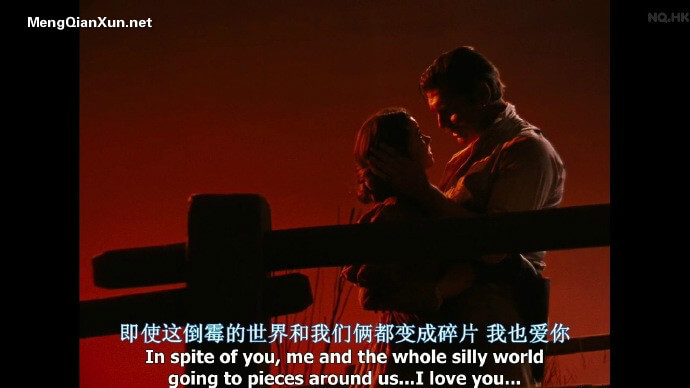《满江红·登黄鹤楼有感》是南宋词人岳飞所写的一首词。该词上片描写中原锦绣河山在敌人铁蹄下横遭践踏的悲惨景象,从今昔对比中表达了深忱国事的悲愤之情。下片写广大军民为抗击金兵付出惨重代价,作者悲从中生、 慷慨激昂地道出心声。这首《满江红》由文法入词,从“想当年”、“到而今”、“何日”说到“却归来”,以时间为序,结构严谨,层次分明,语言简练明快,颇具豪放词的特点。
满江红
登黄鹤楼有感
岳飞
遥望中原,
荒烟外、
许多城郭。
想当年,
花遮柳护,
凤楼龙阁。
万岁山[1]前珠翠[2]绕,
蓬壶殿[3]里笙歌作。
到而今、
钱骑满效畿,
风尘恶。
兵安在?
膏锋锷[4]。
民安在?
填沟壑。
叹江山如故,
千村寥落。
何日请缨提锐旅,
一鞭直渡清河洛[5]。
却归来、
再续汉阳游,
骑黄鹤[6]。
注释:
[1]万岁山:艮岳山,宋徽宗政和年间造。
[2]珠翠:妇女佩戴的首饰。指代宫女。
[3]蓬壶殿:疑即北宋故宫内的蓬莱殿。
[4]膏锋锷:指兵士的血滋润了兵器的尖端,即兵士被刀剑杀死。膏,滋润。锋,兵器的尖端。锷,剑刃。
[5]河洛:黄河、洛水。泛指中原。
[6]骑黄鹤:陆游《入蜀记》:“黄鹤楼,旧传费讳飞升于此,后忽乘黄鹤来归,故以名楼。”
The River All Red
On Mounting Yellow Crane Tower
Yue Fei
I gaze on Central Plain from afar.
Beyond the wasteland drear and dry,
How many city wails and towns there are!
In years gone by,
As many pavilions and bowers
Were screened by green willows and red flowers,
The Royal Hill adorned with pearls and emerald,
The Fairy Palace filled with flute songs. Now behold!
Neath city wails enemy horses raise a dust
When the wind blows in gust.
Where are our armed men?
By swords they were slain.
And people alike
Have filled moat and dyke.
Alas! The land still seems the same,
But villages lie ruined in war flame.
When can I get the order
To lead my warriors brave,
Whipping my steed, to cross the river wave
And clear the border?
When I come back again,
I’ll make a southern trip on yellow crane.
注释:
The poet is a famous general fighting against the Jurchen invaders with many victories but put to death by the emperor who fears to be dethroned if the emperors captured by the invaders should come back to the capital and be restored to the throne.
未经允许不得转载:帕布莉卡 » 岳飞《满江红·登黄鹤楼有感》 -经典诗词英译-中英双语赏析
 帕布莉卡
帕布莉卡


 爱是一颗心遇到另一颗心(出处+配图)
爱是一颗心遇到另一颗心(出处+配图)  《乱世佳人》电影专题
《乱世佳人》电影专题

